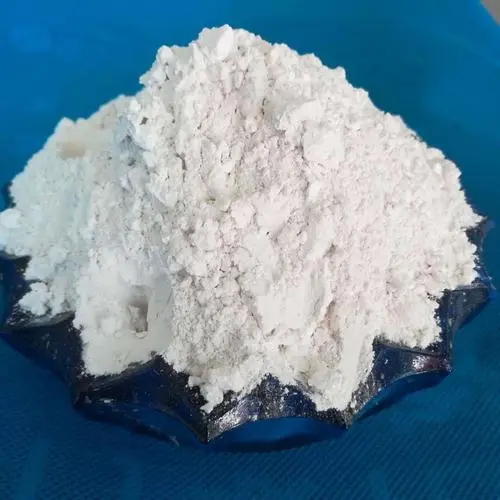
china kaolin clay powder factories
Exploring China’s Kaolin Clay Powder Factories A Deep Dive into Production and Quality
Kaolin, often referred to as china clay, is a naturally occurring mineral that has been utilized for centuries in various industries, ranging from ceramics to paper production and even pharmaceuticals. China is one of the largest producers of kaolin clay powder in the world, with numerous factories dedicated to its extraction and processing. This article explores the significance of kaolin clay, the facilities producing it, and the factors contributing to China's dominance in this market.
The Importance of Kaolin
Kaolin is a type of clay that is composed predominantly of kaolinite, a layered silicate mineral. Its unique properties, such as fine particle size, high brightness, and excellent plasticity, make it a valuable resource. Industries like ceramics utilize kaolin in the creation of porcelain and pottery, while paper manufacturers incorporate it to enhance brightness and opacity. In the realm of cosmetics and pharmaceuticals, kaolin serves as an ingredient in various formulations, providing adsorption properties that are beneficial in skincare products.
China's Kaolin Clay Production Landscape
China boasts a rich deposit of kaolin clay reserves, making it a leading player in the global kaolin market. The country’s kaolin clay factories are primarily located in regions such as Jiangxi, Guangdong, and Hunan. These areas are renowned for their high-quality kaolin deposits, which have drawn investments from both domestic and international companies.
The factories in China integrate advanced technology and traditional processing methods to produce a wide range of kaolin products. The production process typically involves several stages, including mining, refining, and drying. Mining operations are conducted in open-pit mines, where the kaolin is extracted and transported to processing plants for refinement. Here, impurities are removed through washing and milling, resulting in high-purity kaolin suitable for various applications.
Quality Control and Standards
china kaolin clay powder factories

With the increasing demand for kaolin clay, maintaining high standards of quality has become paramount for Chinese manufacturers. Many factories adopt rigorous quality control measures to ensure that their products meet both domestic and international standards. Key attributes such as particle size distribution, brightness, and plasticity are meticulously tested and optimized throughout the production process.
ISO certifications are commonly held by factories, demonstrating their commitment to quality management and consistency. Furthermore, some manufacturers engage in sustainable practices to reduce environmental impact, such as implementing water recycling systems and utilizing eco-friendly processing agents. These efforts not only enhance the quality of kaolin products but also align with global movements toward sustainable industry practices.
Global Market Dynamics
Chinese kaolin clay powder factories play a significant role in the global supply chain. The country's exports of kaolin have seen steady growth, driven by high demand in markets such as the United States, Europe, and Southeast Asia. Factors such as competitive pricing, superior product quality, and reliable supply chains have made Chinese kaolin a preferred choice for manufacturers worldwide.
However, the industry faces challenges, including competition from other countries with kaolin reserves, such as Brazil and the United States. Additionally, fluctuations in demand, particularly in the ceramics and paper industries, can impact production levels. Nevertheless, China's ongoing investments in technology and infrastructure, coupled with its vast resources, position it strongly in the kaolin market.
Conclusion
The kaolin clay powder factories in China are vital contributors to both national and global economies. Through advanced production techniques and stringent quality control measures, these factories produce high-quality kaolin that meets diverse industrial needs. As global markets continue to evolve, Chinese manufacturers are well-positioned to adapt and thrive, reinforcing the country’s status as a dominant force in the kaolin industry. As we move forward, the sustainability of kaolin production and its applications will be pivotal in shaping the future of this ancient mineral.
Share
-
Fly Ash Solutions Enhanced by GPT-4 Turbo | Sustainable InnovationNewsAug.01,2025
-
Natural Premium Bentonite Cat Litter - Superior ClumpingNewsJul.31,2025
-
Premium Resin Coated Sand - High Heat Resistance CastingNewsJul.31,2025
-
High Quality Silicon Carbide Grit for Abrasive ApplicationsNewsJul.30,2025
-
High-Quality Ceramsite for Plants & Gardening | Lightweight PebblesNewsJul.29,2025
-
Premium Burgundy Glass Marbles for Vases & Shooter GamesNewsJul.29,2025






